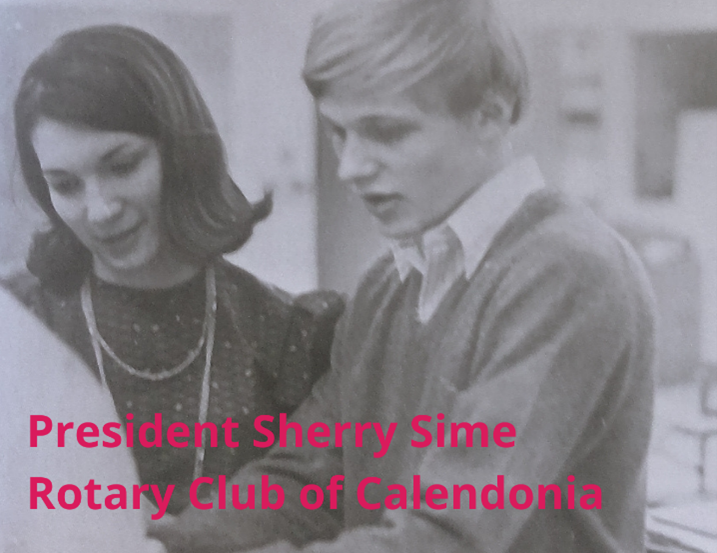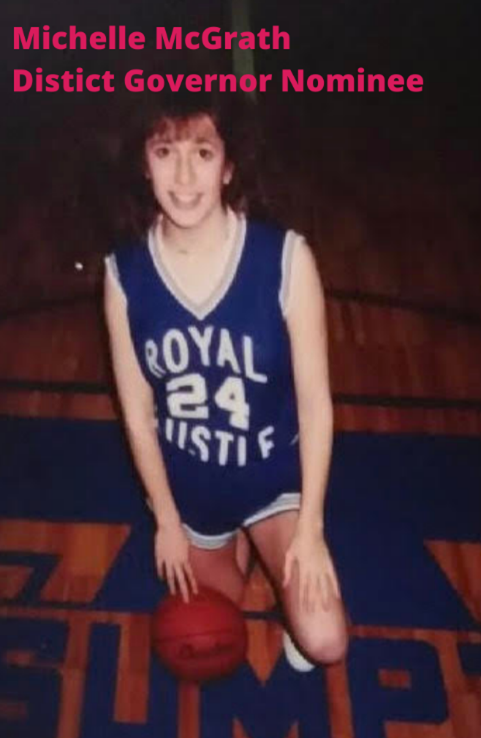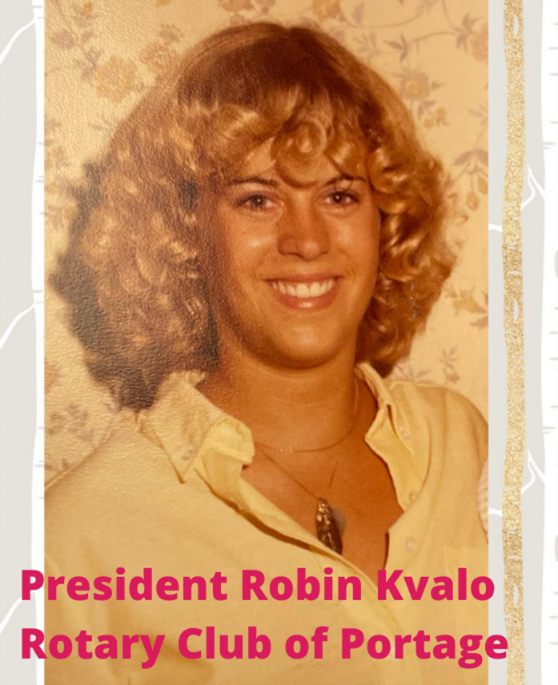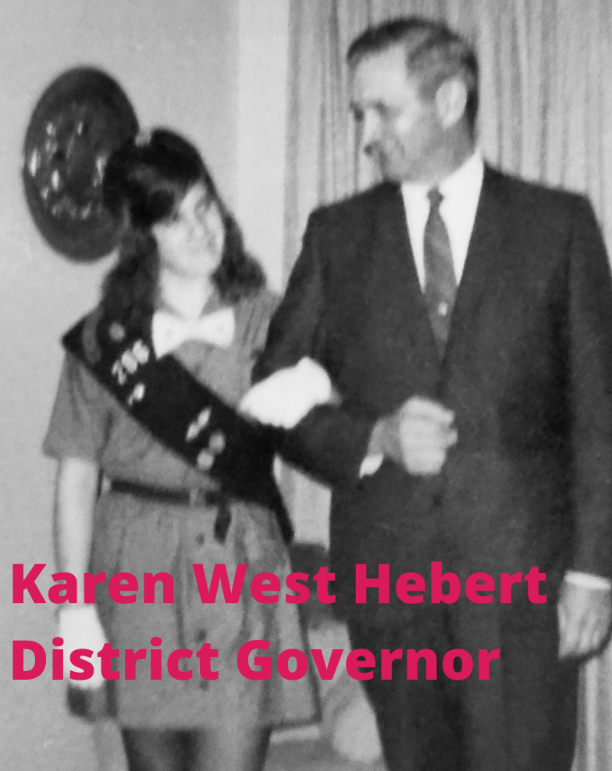
Empowered to Lead
 It was the Spring of my Junior year in high school and time for candidates to announce for the leadership of the student body for the coming school year. The previous fall the student body had experienced both a tragic death of one student and serious injury to another. We all grew up quickly that November.
It was the Spring of my Junior year in high school and time for candidates to announce for the leadership of the student body for the coming school year. The previous fall the student body had experienced both a tragic death of one student and serious injury to another. We all grew up quickly that November.When I thought about leading my fellow students, I knew I was ready. I had always been a serious student and had become even more so following the accident, so I put my name in as a candidate for student council president.
Then I learned that I couldn’t be student council president. I couldn’t even be a candidate for student council president. Why? Only a boy could be student body president. A girl could be vice-president. The gender tradition/restriction continued, only a boy could be treasurer and only a girl could be secretary.
And no, I didn’t ride to school in a horse and buggy. It was, however, a Catholic school slow to respond to changes in society. This wasn’t my first challenge to the administration. I sewed a patch bearing a dove to my uniform blazer. “Take that off.” I wore slacks to an after-football game mixer. “If you want to come to the dance, you have to change.” Would this be another losing battle?
Friends rallied around me. They shared my frustration and encouraged, demanded, that I run for Vice-President. They empowered me to rise to the occasion, rise above my anger at the unfairness of the situation, and run for the office that was open to me. I still remember sitting at the home of one of the upperclassmen when we came up with my slogan. Let the Sunshine In with Lynn. I was elected. And the following Fall I joined the speech team, writing and competing with my Original Oration about women’s rights. But that story is for another day.
Enjoy the Ride
 At the beginning of my senior year in high school, my class was gearing up for creating a legacy through our yearbook. A few of us were in the crosshairs of our classmates’ vision as they elected the six-member yearbook staff. I remember being honored and thrilled that my class wanted me to be a co-editor. The thrill soon wore thin as the overwhelming task of actually creating our yearbook came into view.
At the beginning of my senior year in high school, my class was gearing up for creating a legacy through our yearbook. A few of us were in the crosshairs of our classmates’ vision as they elected the six-member yearbook staff. I remember being honored and thrilled that my class wanted me to be a co-editor. The thrill soon wore thin as the overwhelming task of actually creating our yearbook came into view.The first deadline was haunting us. There were many pressures: photographs to take, film to develop into pictures, layouts to create, working late after school. And, at the top of the list, publishing a yearbook our whole class would be proud to have as a keepsake.
In a state of panic, I rushed into Mr. Shold’s office and proceeded to have an emotional breakdown. He was our yearbook advisor and the superintendent of our school district and I had great respect for him. Mr. Shold listened to my woes and in a very calm manner encouraged me to focus on the first deadline—one step at a time. I dried my eyes, gathered my pride, and returned to the team. We met the first deadline! One photograph at a time, one layout at a time, we met every deadline.
I gained many valuable life lessons from this experience. I was definitely outside my comfort zone. But, I was not alone. Team members and mentors shared that same journey that contributed to our success. Deadlines became more attainable by breaking them down into manageable pieces. Perhaps most importantly, I learned to enjoy the ride—and many cherished memories resulted in the process.
Game of Life
 Having the opportunity to start working at age 12 was the first step to my early empowerment. That was how I began to make choices about the future.
Having the opportunity to start working at age 12 was the first step to my early empowerment. That was how I began to make choices about the future.One of my choices was to be the first in my family to go to college. For a young woman from a small farming community in rural Wisconsin this was a bold choice. And it would only happen if I earned enough money.
In high school I was a starter on the girls’ varsity basketball team. I also worked at a local store 20 hours each week to earn spending money and save for my college dream. To be on time for my job I needed to leave basketball practice 20 minutes early a couple of times a week. A few weeks into the season as I was again leaving early to race to my job, the coach called me out. In front of the entire team, he said I lacked commitment and a hard work ethic. And if this continued, I’d find myself on the bench. I gathered all the strength I could, walked over to him, and said, “I’ll gladly take my place on the bench.” And walked out.
I had a choice that day. I could let his words define me, mold me into his vision of hard work and commitment. Or I could have faith in myself, my vision, knowing that what I was doing, what I was choosing, demonstrated more commitment and hard work than he could ever imagine. Maybe I lost the game on the basketball court that day, but I have always known it’s the game of life that matters.
Transformed
 My father was an officer in the Army so I moved every one to three years throughout my entire childhood. Can you imagine moving eleven times before you went to college? That meant changing schools six times from kindergarten through my senior year, always having to make new friends, and having to settle a home quickly. It was hard to establish one's presence anywhere when you moved that often. Now, that is not to say it was a terrible life. I got to experience living in different parts of the United States including Alaska and Hawaii. Additionally, I lived in Germany while I was in high school. We were a strong family unit and I relied heavily upon my parents for my self-confidence, but never realized what others saw in me as a leader until I was in college.
My father was an officer in the Army so I moved every one to three years throughout my entire childhood. Can you imagine moving eleven times before you went to college? That meant changing schools six times from kindergarten through my senior year, always having to make new friends, and having to settle a home quickly. It was hard to establish one's presence anywhere when you moved that often. Now, that is not to say it was a terrible life. I got to experience living in different parts of the United States including Alaska and Hawaii. Additionally, I lived in Germany while I was in high school. We were a strong family unit and I relied heavily upon my parents for my self-confidence, but never realized what others saw in me as a leader until I was in college.Imagine this: my parents were living in Ft. Worth, Texas when I left for college at UW-Madison. I was 1,000 miles away from my family. I knew no one on a campus of 40,000 students. I had moved a lot but I always had my parents and sister with me. Now I was on my own. I chose to make the campus a little smaller by joining a sorority. It was the best decision I made my freshman year. Little did I know that I'd find a group of 100 women I could call friends. However, I quickly realized this group was about more than friendship: it was also about building leadership in young women. They saw qualities in me that I had yet to discover.
Outsiders often view sorority life critically, but having experienced it firsthand, I can affirm the incredible opportunities it provided me as a young woman just discovering herself. It transformed me.
Through a variety of experiences in the group, I developed skills I used during my college years and beyond. By my sophomore year, I was asked to be the House Manager for the 50 women who lived in the house, collaborating with the House Parents and Alumni House Board. This was a leadership position I would never have dreamed I was capable of holding, yet I had developed the skills and confidence to perform the job I was being asked to do. An amazing transformation had occurred. From that point forward, I confidently said yes to tasks I was asked to lead, knowing I had the skills to successfully complete them.
Stand
 St. Agnes Elementary School took my education and molding seriously. Staff knew just what to do – push me, reward me, and penalize me when I was out of line. I responded very well to pushing and rewarding – and not well at all to the penalizing. It was a love-hate relationship from all sides.
St. Agnes Elementary School took my education and molding seriously. Staff knew just what to do – push me, reward me, and penalize me when I was out of line. I responded very well to pushing and rewarding – and not well at all to the penalizing. It was a love-hate relationship from all sides.Except for that one day. That one winter day, in 1974, during art class.
Steve G. was a classic bully. He was tall, strong, smart, and shameless. He ruined everything that I valued and hurt people who couldn’t stand up to him – which was nearly everyone, including the system. Until this day, I was just an observer.
If the day’s art required sticking things together, we St. Agnes students walked to the front of the room with a scrap of paper on which we would spread a blob of paste from a giant plastic tub. While I was on my way up, Steve smeared his paste on my navy uniform skirt. In that moment I was transformed from observer to victim.
I looked down, sized up the situation, continued to the front, got my paste, turned toward Sister Mary Louise and wordlessly asked for permission to act. I wondered if she, like me, was in the frame of mind to stand up to bullying.
She nodded.
I was empowered.
I stopped beside Steve’s desk, he looked up, and I smeared my paste from his forehead to nose. “I’m going to kill you, West,” he responded. I figured he meant it.
In the hallway a bit later in the day, Steve smashed my face into the bubbler as I drank. Returning to class, Sister suggested I stay after for an hour to let things cool off. I did. Things didn’t.
On my solo five-block trek home - Ninth, Russell, Langlade – Steve appeared. He’d hidden behind a house, waited an hour, and amassed an arsenal of good-sized ice chunks. He whipped them at me – at my head particularly – and I thought I might just die after all. I ran – Rockdale, Biemeret – home; bruised, shaken, afraid.
And liberated.
My memories of what followed are vague. I don’t remember anything more about Steve’s bullying. Since I was so nervous, I’m guessing there was, in fact, less bullying. But the memory of Sister is crystal clear. She supported my stand for justice, knowing that she couldn’t protect me from the risks. It’s important to stand, and I admire the courage in those that do.